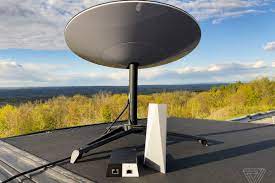
Breaking News
 Canada's MAID CULTURE OF DEATH Just Hit Rock Bottom: KILLING PRISONERS NOW!!!
Canada's MAID CULTURE OF DEATH Just Hit Rock Bottom: KILLING PRISONERS NOW!!!
 Weight gain single-handedly prevented by a gut microbe
Weight gain single-handedly prevented by a gut microbe
 Doug Casey on 2025's Defining Events and What Comes Next
Doug Casey on 2025's Defining Events and What Comes Next
 BREAKING: Officer Tatum & Other Investigators Believe A Potential Suspect In The Brown...
BREAKING: Officer Tatum & Other Investigators Believe A Potential Suspect In The Brown...
Top Tech News
 This tiny dev board is packed with features for ambitious makers
This tiny dev board is packed with features for ambitious makers
 Scientists Discover Gel to Regrow Tooth Enamel
Scientists Discover Gel to Regrow Tooth Enamel
 Vitamin C and Dandelion Root Killing Cancer Cells -- as Former CDC Director Calls for COVID-19...
Vitamin C and Dandelion Root Killing Cancer Cells -- as Former CDC Director Calls for COVID-19...
 Galactic Brain: US firm plans space-based data centers, power grid to challenge China
Galactic Brain: US firm plans space-based data centers, power grid to challenge China
 A microbial cleanup for glyphosate just earned a patent. Here's why that matters
A microbial cleanup for glyphosate just earned a patent. Here's why that matters
 Japan Breaks Internet Speed Record with 5 Million Times Faster Data Transfer
Japan Breaks Internet Speed Record with 5 Million Times Faster Data Transfer
 Advanced Propulsion Resources Part 1 of 2
Advanced Propulsion Resources Part 1 of 2
 PulsarFusion a forward-thinking UK aerospace company, is pushing the boundaries of space travel...
PulsarFusion a forward-thinking UK aerospace company, is pushing the boundaries of space travel...
 Dinky little laser box throws big-screen entertainment from inches away
Dinky little laser box throws big-screen entertainment from inches away
 'World's first' sodium-ion flashlight shines bright even at -40 ºF
'World's first' sodium-ion flashlight shines bright even at -40 ºF
Elon Musk's Starlink satellite internet will charge users $25-a-month to connect while...

Elon Musk's Starlink satellite internet service will charge users a $25-a-month top-up fee if they want to use it while travelling - but coverage isn't guaranteed.
This extra charge is on top of the $110-a-month subscription users pay to access the broadband network, beamed from thousands of satellites in low Earth orbit.
Portability has worked for some users in the past, but was never officially supported by the SpaceX-owned network, although Musk promised it would be introduced.
As long as the area is covered by one of the more than 2,000 Starlink satellites, users will be able to take their dish and router wherever they go, and get online.
Although it does appear the offering is restricted to within the North American continent, rather than being a global service.
The new service was first spotted by Tesla investor and YouTuber Dave Lee, who shared a screengrab of the 'Add Portability' option.
It looks like it will be a flexible service, with customers able to switch it on and off as required - paying the $25 for a vacation, then switching it off when they return.
The charge is likely because SpaceX has to allow extra bandwidth on all its connection points in case a portable user tries to connect, reducing how many customers it can sell to in that area.
Allowing users to connect to the Starlink network from anywhere is closer to the original idea for the service, proposed by CEO Elon Musk, who's currently buying social media network Twitter for $44 billion.



